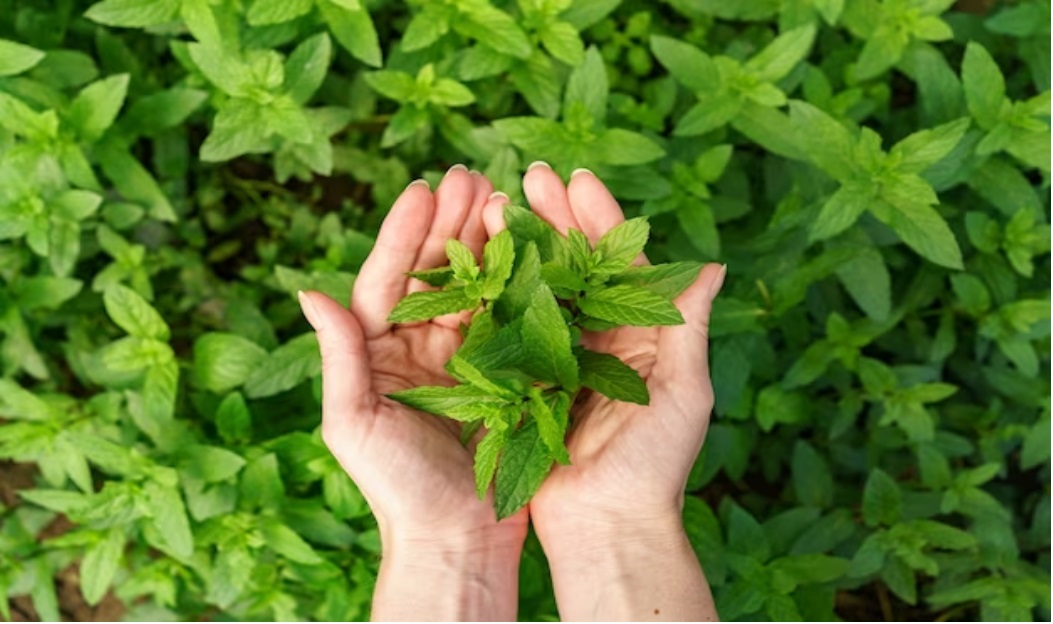Harnessing the Benefits of Tulsi (Holy Basil) Plant: A Comprehensive Exploration
Tulsi, also known as Holy Basil, is a revered and sacred plant in many cultures around the world. Its significance goes beyond religious rituals, as it boasts a plethora of health, medicinal, and environmental benefits. This guide delves into the multifaceted advantages of cultivating and incorporating the Tulsi plant into your life.
1. Medicinal Properties:
Tulsi as an Adaptogen: Tulsi is classified as an adaptogen, a natural substance that helps the body adapt to stress and promotes overall well-being. It is known to enhance the body’s resilience to stressors, both physical and mental.
Anti-Inflammatory and Antioxidant: Tulsi contains compounds like eugenol, which exhibit anti-inflammatory and antioxidant properties. Regular consumption or topical application of Tulsi can help combat oxidative stress and inflammation in the body.
Immune System Booster: The plant is renowned for its immunomodulatory properties, assisting the immune system in fighting off infections and diseases. Regular consumption of Tulsi may contribute to a stronger immune system.
2. Respiratory Health:
Relief from Respiratory Disorders: Tulsi is considered effective in providing relief from respiratory disorders. The presence of compounds like camphene, eugenol, and cineole imparts antimicrobial properties, making Tulsi an excellent remedy for coughs, colds, and bronchitis.
Asthma Management: The anti-inflammatory and bronchodilator properties of Tulsi make it beneficial for individuals with asthma. Inhaling the vapor from Tulsi leaves may help alleviate symptoms.
3. Cardiovascular Health:
Blood Pressure Regulation: Tulsi is believed to aid in the regulation of blood pressure. The presence of compounds like eugenol helps in reducing blood pressure levels, promoting cardiovascular health.
Cholesterol Management: Research suggests that Tulsi may contribute to lowering cholesterol levels, particularly bad cholesterol (LDL). This property is crucial for maintaining a healthy cardiovascular system.
4. Stress Reduction:
Adaptogenic Properties: Tulsi’s adaptogenic nature is beneficial for managing stress. Regular consumption may help stabilize cortisol levels, the hormone associated with stress.
Improved Cognitive Function: Tulsi is believed to have cognitive-enhancing properties. It may help improve memory and cognitive function, making it a valuable addition to stress management.
5. Diabetes Management:
Blood Sugar Regulation: Studies indicate that Tulsi may assist in regulating blood sugar levels. Compounds like oleanolic acid and methanol found in Tulsi contribute to its anti-diabetic properties.
6. Skin Care:
Anti-Acne and Antimicrobial: Tulsi’s antimicrobial and anti-inflammatory properties make it effective in managing acne and other skin conditions. Applying a paste or using Tulsi-infused products can promote clearer skin.
Anti-Aging Benefits: The antioxidants present in Tulsi help combat free radicals, preventing premature aging. Regular use may contribute to maintaining youthful and radiant skin.
7. Oral Health:
Oral Care and Fresh Breath: Tulsi’s antibacterial properties make it a natural remedy for oral care. Chewing Tulsi leaves or using Tulsi-based toothpaste can help fight bacteria, reduce bad breath, and promote overall oral hygiene.
8. Culinary Uses:
Flavorful Herb in Cooking: Apart from its medicinal properties, Tulsi is a versatile herb used in cooking. Its distinct flavor adds depth to various dishes, making it a popular ingredient in Indian cuisine.
9. Environmental Benefits:
Natural Mosquito Repellent: Tulsi emits a fragrance that acts as a natural mosquito repellent. Growing Tulsi plants around your home can help keep mosquitoes at bay.
Air Purification: Tulsi is known for its air-purifying properties. The plant absorbs pollutants and releases oxygen, contributing to a healthier indoor environment.
10. Spiritual and Cultural Significance:
Sacred Symbolism: Tulsi holds immense cultural and religious significance in Hinduism. It is considered a sacred plant and is often worshipped as a manifestation of the goddess Lakshmi. Having a Tulsi plant at home is believed to bring prosperity and positive energy.
Conclusion: Embracing the Holistic Benefits of Tulsi
The Tulsi plant, with its rich history and multifaceted benefits, emerges as a holistic powerhouse for health, well-being, and environmental harmony. Whether consumed in teas, incorporated into skincare routines, or revered for its spiritual significance, Tulsi stands as a testament to the symbiotic relationship between nature and human wellness. Cultivating and embracing the Tulsi plant in various aspects of life can undoubtedly contribute to a healthier, more balanced lifestyle.

